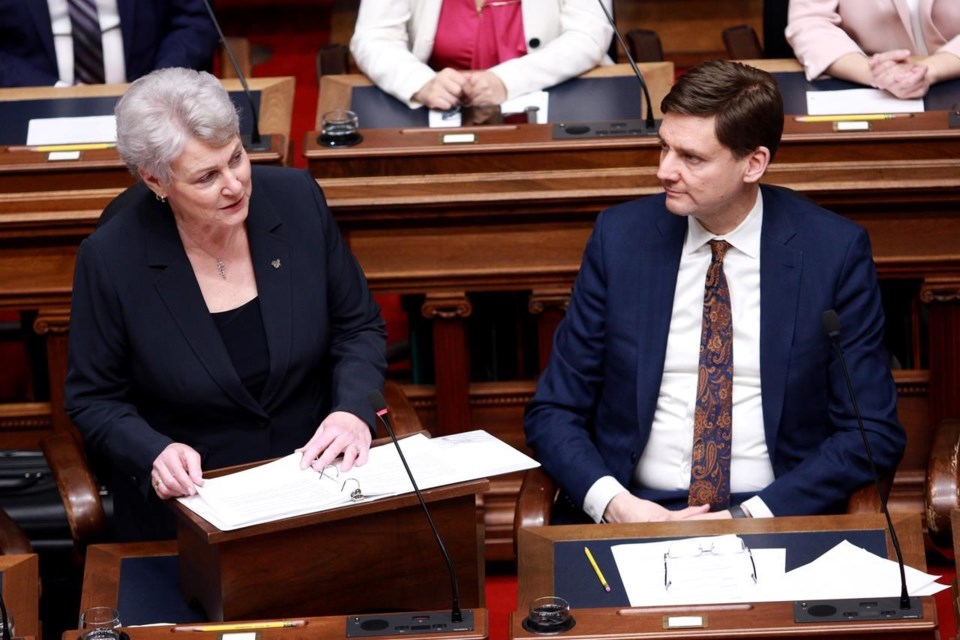NEW YORK — British Columbia's credit status took a double blow on Tuesday, with S&P downgrading the province due to the risk of "outsize" deficits, and Moody's turning its outlook negative.
S&P Global Ratings blamed big government spending as it dropped its credit rating for the province and BC Hydro's provincially guaranteed unsecured debt from AA status to AA-minus.
It's the third rating drop since 2021, when B.C. lost AAA status.
"The Province of British Columbia's 2024 budget outlines continued extensive investment for operations and record levels of capital spending over the next three years, which will lead to outsize after-capital deficits of more than 15 per cent of total revenues and a relatively steep increase in debt through to fiscal 2027," it said in a statement.
It said that in the next two years there was at least a one-in-three chance the current fiscal course would result in rising debt levels and very low internal liquidity, "weaker than those of similarly rated peers."
That would mean another ratings cut, it said.
Another global ratings agency, Moody’s Investors Service, separately revised its outlook for B.C. to negative on Tuesday.
But Moody's maintained its long-standing AAA rating for the province, its highest rank of credit worthiness.
B.C. Finance Minister Katrine Conroy said factors such as the slowing global economy may have played a role in the S&P ratings drop, but other assessors such as Fitch Ratings had found B.C. to be on stable fiscal ground.
Conroy said that the capital investments noted by S&P were needed because the NDP government "inherited a deficit of infrastructure" from their BC Liberal predecessors, now known as BC United.
"We have had to build hospitals. We have had to build schools. We have had to build roads. We have had to make housing a priority because of what we inherited," Conroy said in the B.C. legislature on Tuesday.
S&P said a reversal of the province's "fiscal trajectory" is needed along with stronger economic growth for the outlook to be revised to stable.
It said the province's commitment to fiscal discipline and stability have "wavered" recently as B.C. increases spending on operations and capital investment to what S&P calls "unparalleled levels" amid slowing growth.
"Considering B.C.'s focus on taxpayer affordability and on capital investment when economic growth is weakening, we expect that the province's fiscal performance will materially deteriorate in the next two years," S&P said.
Opposition BC United finance spokesman Peter Milobar said in a statement that the "dual downgrades" by Moody's and S&P "are a clear sign of the NDP’s fiscal mismanagement."
“Each downgrade under the NDP brings higher taxes and tighter budgets for British Columbians. The result is higher costs for loans, as David Eby’s policies drain our wallets," he said, calling the credit assessments "a wake-up call."
BC Conservative member Bruce Banman said in a statement that S&P's lower rating reflected the firm "losing confidence" in the NDP government's ability to manage the province's finances.
"The largest credit institutions in the world have taken a look into this premier's mismanagement of taxpayer dollars, and they think he cannot be trusted," Banman said. "British Columbia is spending an extraordinary amount of money to get less and less and less for everyday hard-working people."
— By Chuck Chiang in Vancouver
This report by The Canadian Press was first published April, 9, 2024.
The Canadian Press



